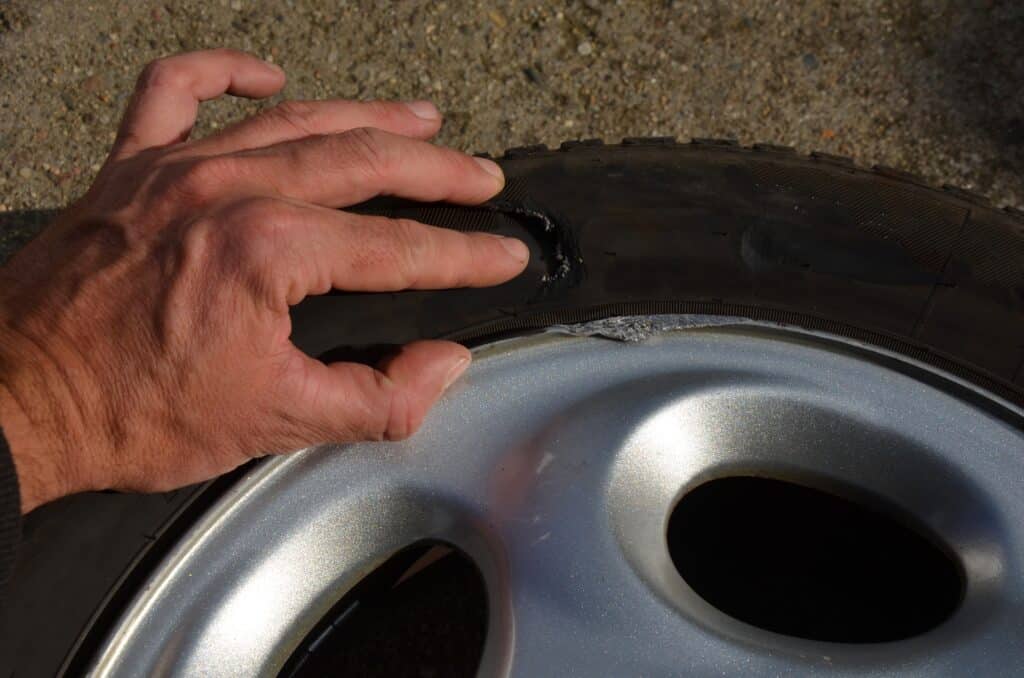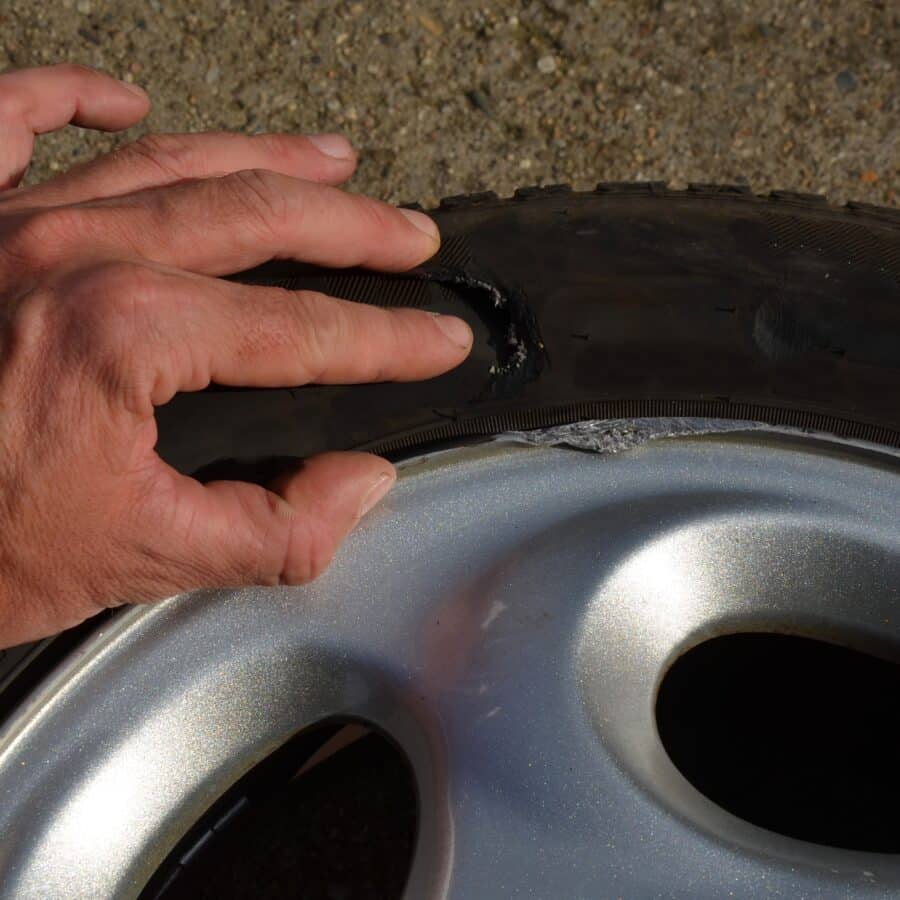A defective tire case must establish that the tire was defective, the tire caused the accident (or made it worse), you suffered injuries in the accident, and you experienced financial, physical, or emotional damages. All these factors are important when assessing whether you have a viable claim. If a defective tire caused your accident, the defendant may have to pay the damages.
The Elements of a Defective Tire Case
Any defective tire case has to establish these elements:
Evidence of a Defective Tire
We must show that a defect in the tire’s design, manufacture, distribution, or repair is responsible for your accident and injuries. If we can prove this defect caused or contributed to your accident, you could receive compensation for your medical bills, pain and suffering, and lost wages.

Defective tire cases require proving that the tire was defective and caused or contributed to an accident.
It is important to preserve any evidence that could be useful in proving your defective tire case. You often need a survey team to retain the tire and vehicle involved in your accident. They should take pictures of the scene and collect remains of the tire that experts may later use to investigate your claim. It is helpful to know the make and model of the tire involved and check to see if it is on a recall list.
Causation
Your case must establish that the tire was defective and caused or contributed to the wreck and your injuries. This might require assistance from engineers and other experts who can evaluate the tire, the accident, and other important issues that might help establish causation.
You Suffered Injuries & Damages
Your case must also establish that you suffered injuries related to the wreck caused by a defective tire. Plaintiffs must also prove they experienced physical, emotional, and/or financial damages related to their injuries.
Proving a defective tire case is usually expensive. It can cost hundreds of thousands of dollars to try this type of case. That is why law firms will likely only take the case if there is serious injury or death.
Identifying Liable Parties
The specifics of your case will determine who is responsible. If there were errors in the design or manufacturing of the tire involved, the manufacturer could be liable for your financial, physical, or emotional damages. Other parties such as car dealers or service providers could be liable if they knew the tire was defective.
Further, a manufacturer may be strictly liable for a defective product regardless of its negligence.
However, the defendant may fight to pay you as little as possible or nothing at all. That is why it is important to work with an attorney who is familiar with complex product liability cases.
How Defective Tires Cause Accidents
According to the National Highway Traffic Safety Administration (NHTSA), there are 11,000 tire-related crashes each year. There were 733 motor vehicle traffic fatalities in 2016 involving tire malfunction.
Car manufactures have recalled millions of tires with known defects to try to prevent accidents. Unfortunately, there are still millions of these tires on the road. There are many more that have not yet been recalled that will experience tread separation before their useful life has expired.
A quick way to see if a tire is defective is to check if it has an open recall. The NHTSA has a website, Safercar.gov, where you can check for recalled tires and read about current investigations.
Unfortunately, through no fault of your own, you could end up with a set of defective tires. These tires can cause a serious accident or crash.
Tread Separation
Tires today are steel-belted radials, comprised of two steel belts coated with rubber. A design or manufacturing defect, or even just old age, might cause the tire to separate. Tread separation can cause drivers to lose control of the vehicle and get into a serious accident.
Old Tires
Tires are not meant to last forever. Rubber tires degrade over time. Even a new tire can be defective if it has been sitting on a shelf or in a warehouse too long. A tire retailer can be held liable for selling a tire that was too old for safe use. Similarly, a tire service shop can be liable for mounting an aged tire on your vehicle, or for failing to remove an aged tire while servicing the vehicle.
Used Tires
If a retailer sells you used tires that are too old for safe use, or passes the used tires off as new, you could have a defective tire case.
Mismatched Tires
Mismatched tires can affect steering and handling and result in a serious accident. A service shop that mounts mismatched tires, or fails to identify and remove mismatched tires while servicing the vehicle, can be held liable.
Speak With an Attorney Familiar With Defective Tire Cases
If you believe a defective tire caused your accident and injuries, speak with an attorney who has experience handling these types of cases. At Newsome Law, we understand this is a trying time and you or your loved one may be suffering greatly. We will work to determine whether your accident was the result of a defective tire. If so, we will fight to secure the compensation you deserve.
Call us today at 888-270-0717 to discuss your case.


